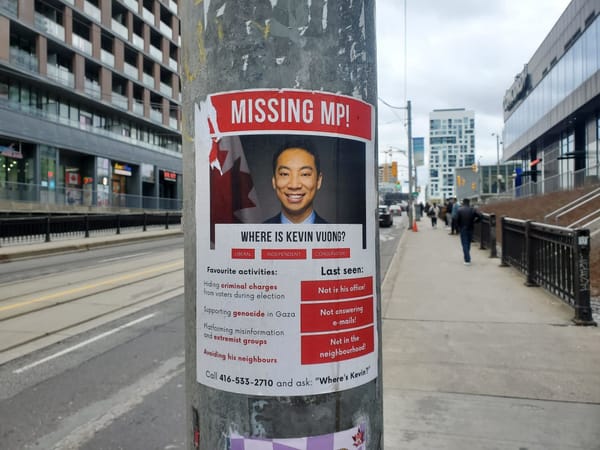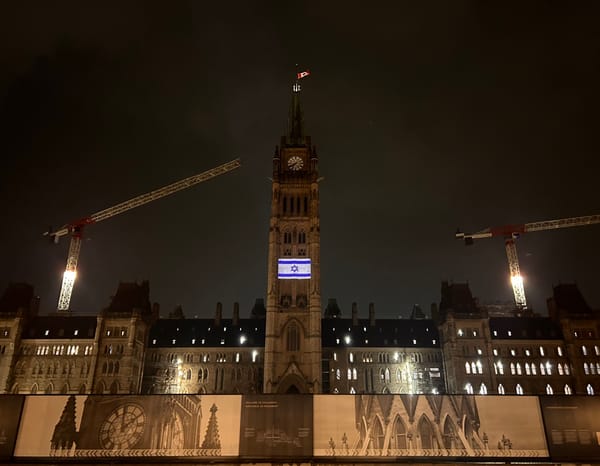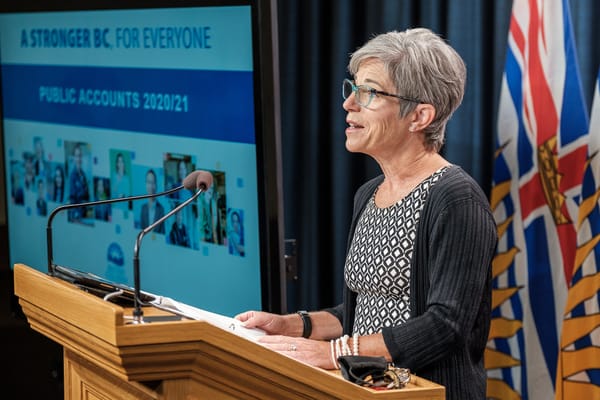Ontario politics seemingly reached a fever pitch recently. With bursting ICU capacities and a premier whose incompetence is rivaled only by his fidelity to profits, Ontarians lashed out on social media, the only public square where police have not yet stopped random people to ask about their business.
Ontarians looked left and right for someone to get their backs. Doctors made pronouncements like, “We tried to warn you” to social media feeds full of other doctors also saying we warned you, and journalists retweeted them in expressions of exasperated powerlessness. The “you” they tried to warn was not exactly you or me, but them: the white politicians who have overseen an incredible campaign of death and suffering that has disproportionately injured and killed racialized people.
Finally, the moment that I assume Ontario NDP (ONDP) Leader Andrea Horwath has been waiting for had come: she could rise to the occasion and emit premierly energy that would inspire confidence among Ontarians. During Horwath’s 12-year tenure, the ONDP has been at best, timid, and at worst, absent, and this would be the ideal opportunity to show that she was just waiting for the perfect time to do something bold.
Amidst the chaos of this past weekend — and despite the 14 previous months of opportunity to deliver a plan that never materialized beyond a bill here and there — the ONDP sent me and thousands of others an email with the subject line: “Our plan to save Ontario.”
Finally!
Except, disappointment again. They didn’t offer a plan; they offered four policy ideas that won’t amount to the radical change for which Ontarians have been begging for months.
Now, before you accuse me of being unfair, I’ve just written an article slamming Ontario Premier Doug Ford and the other premiers of the provincial block sandwiched by New Brunswick and the Pacific Ocean, calling for them to do the bare minimum and stop superspreader events. I analyzed what the science shows very clearly: To stop superspreader events, you need to close down large congregant work settings — not after an infection appears, but in anticipation of one.
To do this effectively, a government would need to have a plan to pay workers to stay home. There would need to be a very clear list of large congregant work settings that must close entirely, and another of corporations that would need to slow their capacity or find temporary workplaces to give workers more space. Governments would also need to beef up enforcement of public health measures without relying on the police, a group that has been notoriously bad at avoiding COVID-19.
These ideas were hardly radical: countries around the world managed to stave off infections through aggressive superspreader mitigation policies that, importantly, didn’t force someone to choose between eating and exposing themselves to COVID-19.
I don’t imagine anyone within the ONDP’s central command read my article. If they did, they would have been too shy to call their four demands a plan.
Among their demands were two calls that have been widely made and supported, and represent the floor of what’s needed from the provincial government: paid sick days for all workers and paid time off to access vaccines.
Both are very important, but neither constitute a plan. Paid sick leave is an after-infection measure, intended to mitigate spread. But to access it, you already must be sick. It’s not proactive, and it doesn’t do much to stop spread at home.
Due to its limitations, the paid sick leave call needs to be accompanied by a widespread closure of large congregant work environments. Now, this might be what the ONDP meant when they made their third demand (to shut down all non-essential workplaces) but it’s hard to know. By Ford’s rhetoric, non-essential businesses are closed. If the ONDP is challenging the definition of essential, which they absolutely should, they need to say that. They need to give a list of businesses that should be closed immediately.
Doing so would give workers in these locations the legitimacy and confidence to be able to say we should not be working, while pointing to the Official Opposition’s comments to support their claims. But in the absence of a list, the ONDP’s third demand is easy to ignore: it’s already the rhetorical law of the land.
This brings us to the most annoying part of the ONDP’s plan: “Give impacted local businesses and workers a new package of financial supports.” With this, the ONDP exposes that they really aren’t in this game for people, but instead are still trying to take part in a popularity contest among the petty bourgeois.
I couldn’t find what their new package of financial supports looks like. It doesn’t seem to be on their website and it’s certainly not linked in the announcement of their plan. But in a press release published today, they noted that they want to give money to small and medium businesses to provide them with commercial rent and payroll “supports.”
So, people need to get sick to receive any financial support from the ONDP, but businesses should be able to have their payroll taxes even further subsidized by the government? It’s extremely alarming that at month 14 of the pandemic, as Ontarians are sinking into very real despair, this is the best the ONDP can come up with. The solutions are there — they only needed to pick the right ones.
Parliamentary democracy needs the Official Opposition to do research, to file freedom of information requests and publish what they say, to promote and support what social movement organizations are saying, and give citizens a location to express their anger to a rogue government. They should use every single parliamentary mechanism available to filibuster and bother Ford and the Conservatives.
But a progressive opposition needs to be much more than that: They need to operate outside of parliamentary democracy as well. They should leverage riding associations to organize local demonstrations and events, to build support for more radical demands and to make the lives of government legislative members hell. They should be demonstrating to Ontario that you can stand up to and intimidate power, even if you’re fronting. Bluster has a place, sometimes.
Instead, the ONDP offered a plan that doesn’t come close to what this moment demands. Another balloon deflating, hissing while also making the loudest and slowest fart noises possible, at the moment where ICU workers are being forced to decide who should live and who should die. Where’s the urgency?
I personally know and have worked with many members of the ONDP caucus. I know there are good people there, and I have no idea if the problem with leadership that is so clear from the outside is as clear internally.
Something needs to change in the ONDP, and it needs to be radical. Because if the party can’t even do the basic work of holding a universally despised government that seems hell-bent on driving people into hospitals to account, there’s no hope for them when we return to normal times.








Member discussion